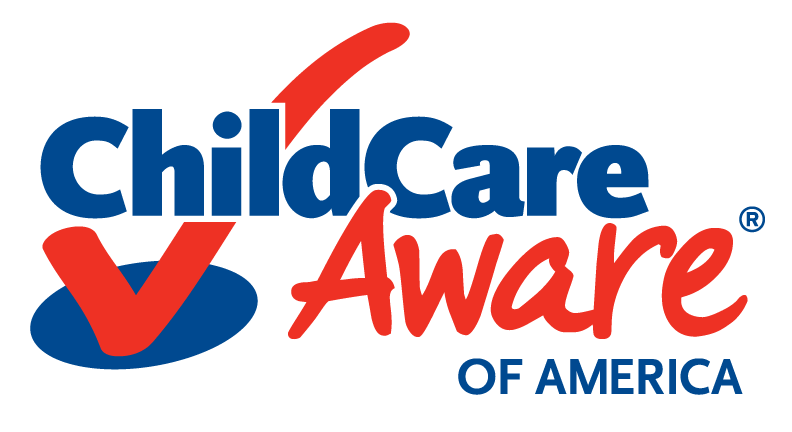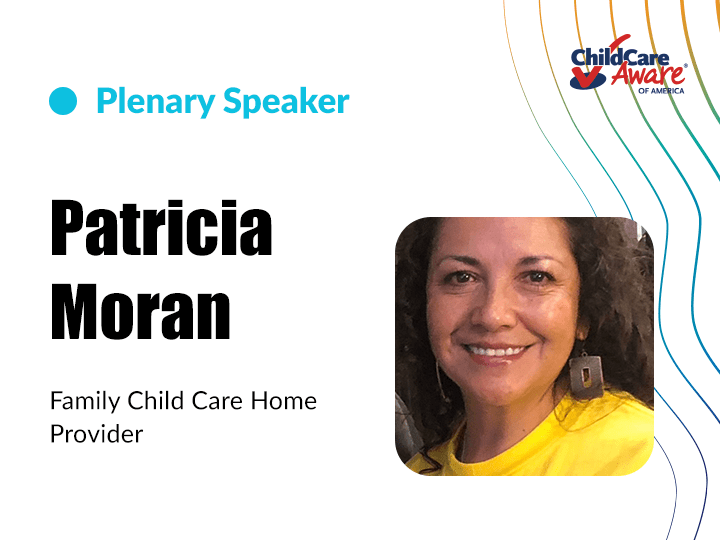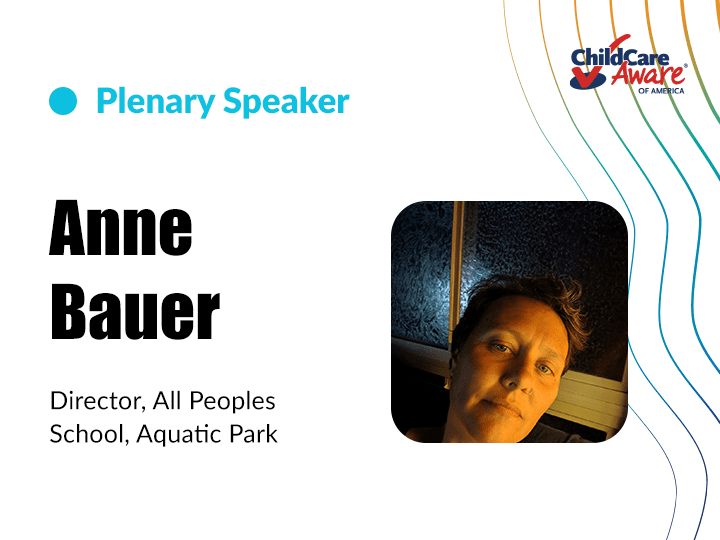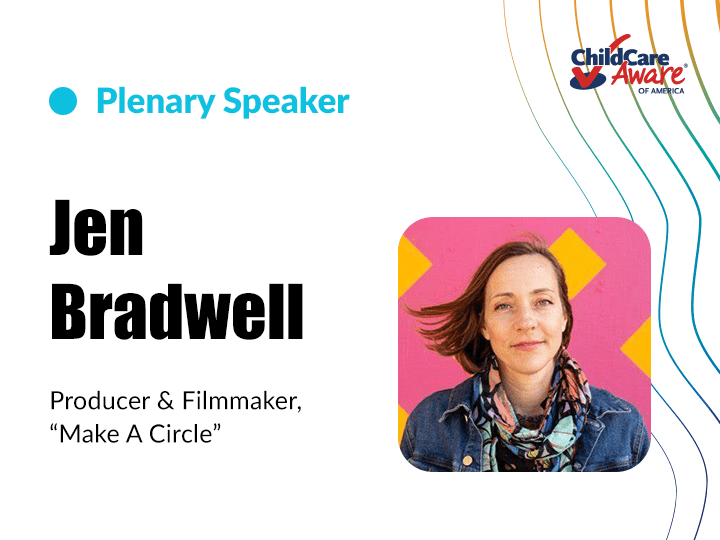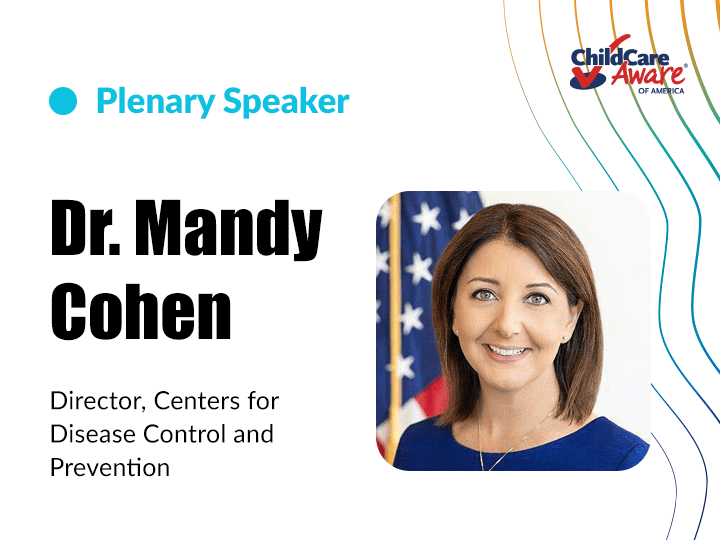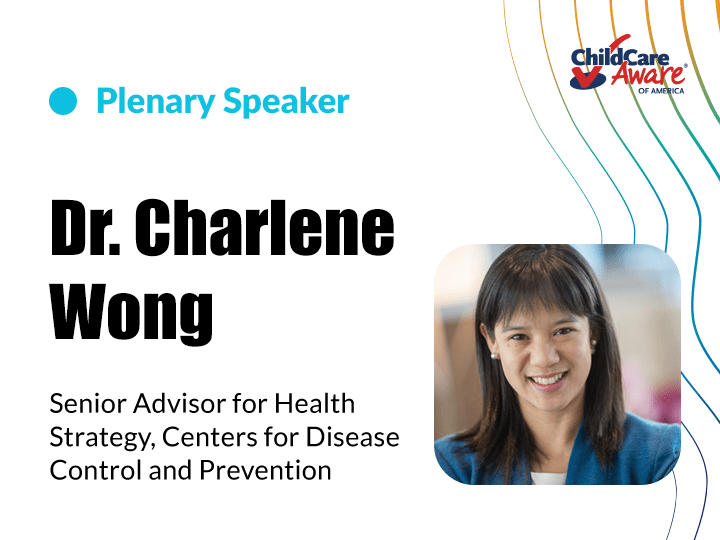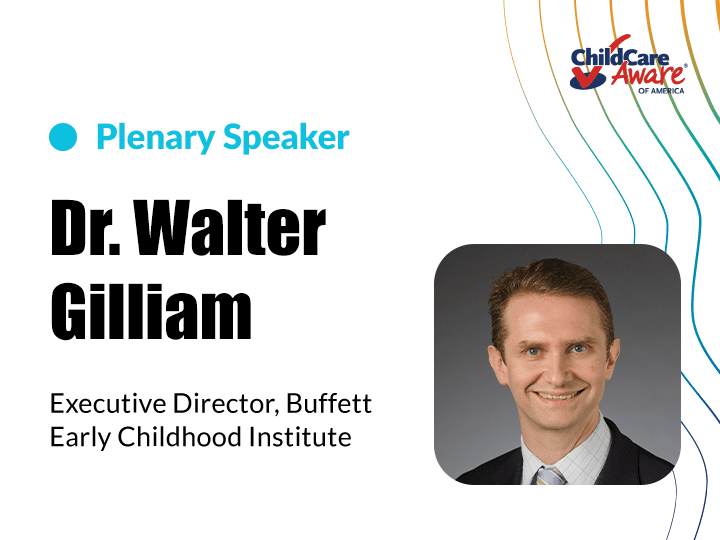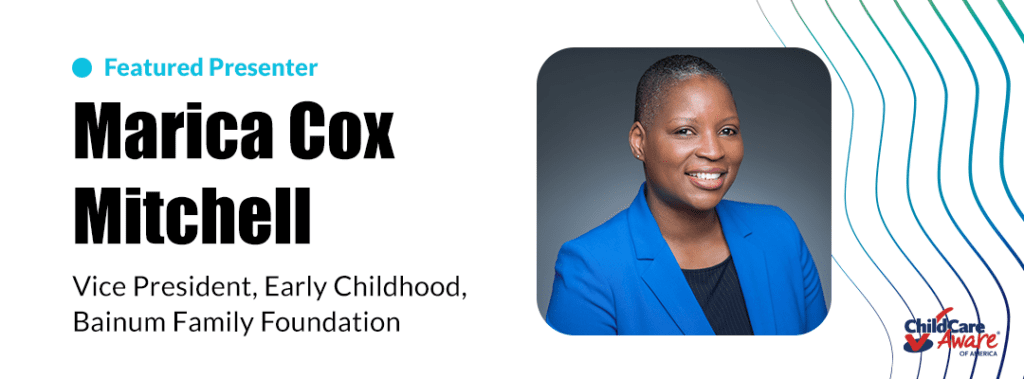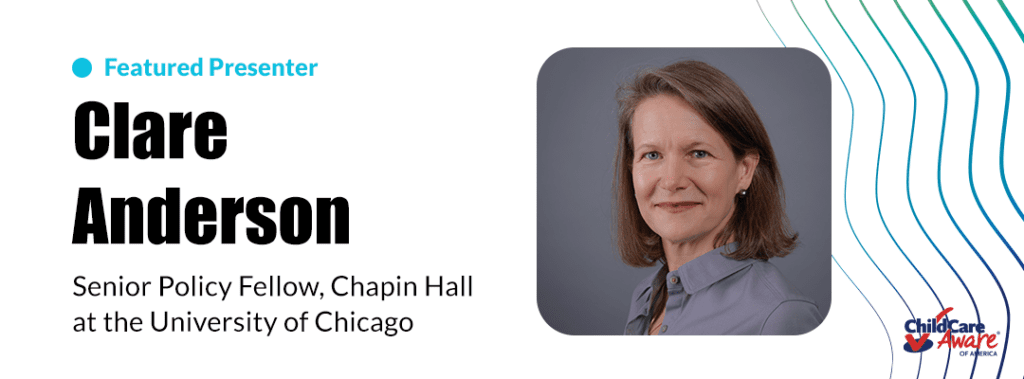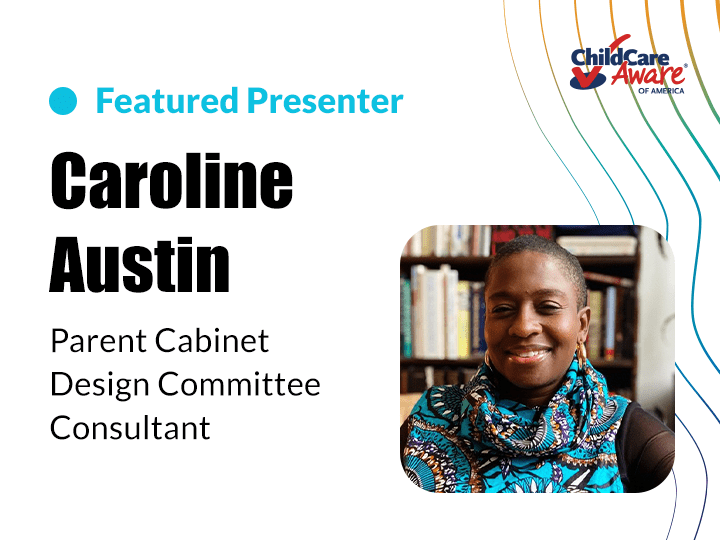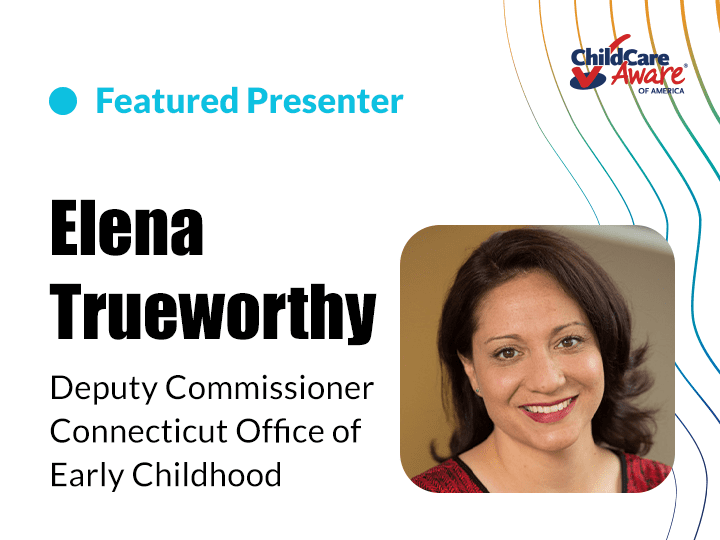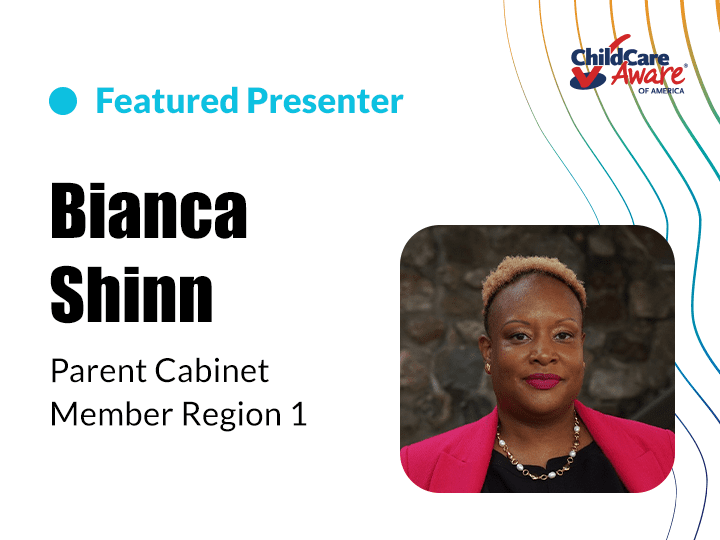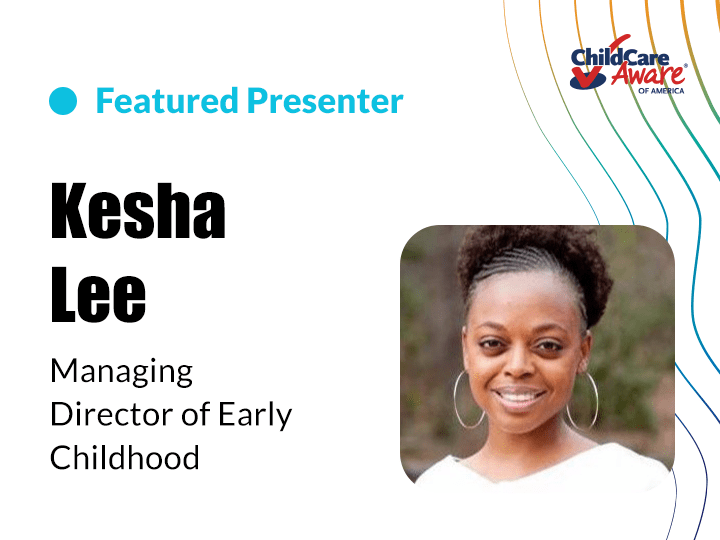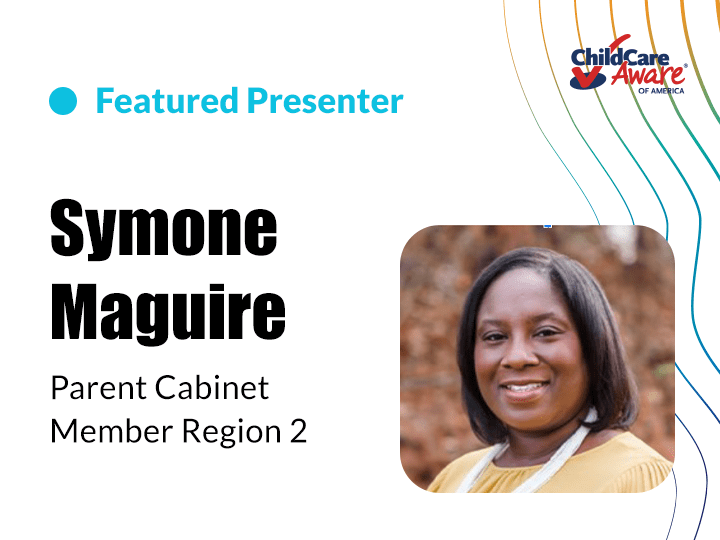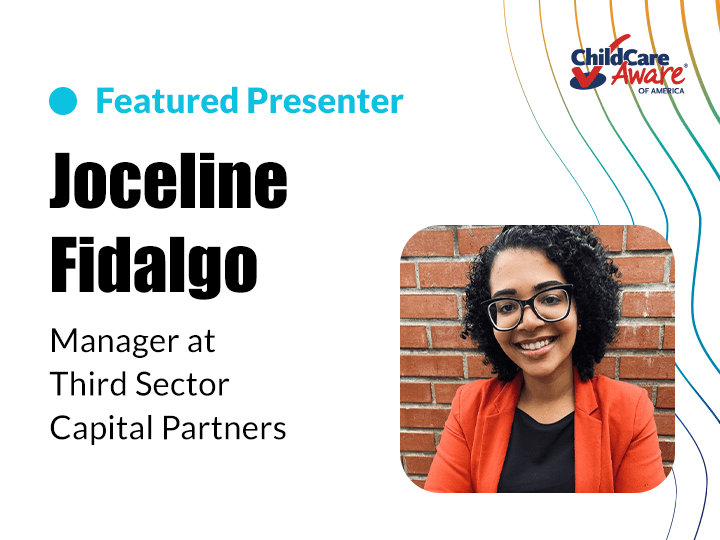
Through a variety of plenary, individual, and concurrent sessions, Raise Child Care! Raise America! helped participants deepen and share their expertise while gaining insight into how to fit their focus and those of others into a successful movement for powerful impact.
On this page you will find the presentations and additive resources from these incredible sessions. We know you will leverage this content to influence the amazing work you are already doing in your communities and continue working towards making child care strong!
Plenary Sessions
- Empowering Voices: Reflections on the experiences of early educators in a new feature documentary
This groundbreaking documentary, crafted by an award-winning filmmaking team, unveils
the story of resilient child care providers who rise from the challenges of the pandemic and
continue advocating for change. Make a Circle closely follows the directors and teachers at
three child care programs over several years, capturing the magic within their classrooms,
their personal struggles, and their unwavering commitment to a child care system that had
already been pushed to its limits.
A stirring portrayal of life as early childhood educators, this film is a powerful call to action
for a society that must reevaluate and revitalize its approach to the education of its youngest
citizens. Don’t miss this groundbreaking documentary and join the grassroots movement.


- Partnering Together to Protect the Health of Young Families
The Centers for Disease Control and Prevention (CDC) is protecting health and
improving lives in every community. Supporting young families is a priority for CDC
that focuses on upstream prevention so that children and families have what they
need to learn, grow and build lifelong healthy behaviors. Child care providers are
critical partners as we work to advance health equity and protect the health of
young families and children as a team. This plenary session will focus on addressing
health through early education as an essential strategy to create healthy progress for
children, families and early educators.
- Building the Early Childhood Mental Health Continuum
Compelling data show that both young children and their caregivers continue to experience worsened mental health post-pandemic. Early childhood teachers demonstrate higher rates of stress and depression and identify more negative internalizing and externalizing behaviors of the young children in their care. Taken together, caregivers have diminished capacity to address young children’s mental health problems and young children’s healthy development and learning may be negatively impacted.
CCR&R and other intermediaries are increasingly being called upon to address the mental health
and well-being of young children and the child care workforce. What does it really look like to
support young children and their caregivers across a continuum of mental health supports? What is
the difference between a mental and behavioral health approach to early childhood mental health
consultation, and why does it matter? Where should we start, and how do we get to scale? Join us for
an engaging plenary session where we’ll delve into these pressing questions. Explore opportunities
for prevention, discover promising classroom strategies for teachers, and learn about innovative
approaches to meet the needs of the early childhood workforce.

- Prepare for Advocacy Day – Messaging and Materials to Raise Child Care
Advocates will hear from CCAoA staff on the current federal landscape, impactful messaging for
advocacy in 2024, an overview of Advocacy Day travel and logistics, and review online and print
materials.
Presenters:
Elise Cranston, Director of Advocacy, Child Care Aware® of America
Christina Koch, Federal Policy Analyst, Child Care Aware® of America
Featured Sessions
- Making Child Care Strong: Are We Ready?
We know the child care system is broken. While the threads we’ve used to patch together the frail and fragmented child care system are unraveling, never before has America been more child care aware. So, what does the ideal child care system look like and what will it take to get there? This session will share insights from the WeVision EarlyEd initiative and examine what families, educators and administrators want to see in their ideal child care system. We will also discuss what it will take to make child care strong and the crucial questions standing in our way.


- Child Care as an Economic & Critical Support to Prevent Child Welfare System Involvement
There is an ever-growing body of science related to how economic and concrete supports
can prevent or avert the unnecessary activation and deployment of child protective services
and the use of foster care. This presentation is a synthesis and translation of that evidence
with an emphasis on child care to inform program and policy choices
- Amplifying Parent Voices: Empowering Change in Child Care Policymaking
Learn how Connecticut is standing up the only official body of parent child care advisors in
the nation to maximize its ability to build and maintain a child care system that best meets
the needs of all of its children and families across race, background and circumstance — and
how you can apply lessons learned to your own parent advocacy!





General Sessions – By Session Track
- Innovative programs and practices
Innovative Approaches States are Using to Raise and Sustain
Quality InitiativesJoin this interactive session to learn and engage with colleagues across the US around
innovative solutions to seize the moment to advance and sustain quality initiatives.
Panelists will share the evolution of initiatives including how they are being implemented,
how they are measuring success and what their plans are for sustainability.
Presenters:
Jodi Whiteman, Director, Partnership and Growth, LENA
Dan Harris, Executive Director, Illinois Network of Child Care Resource and Referral Agencies
Amanda Poyser, Program Manager – Grants, Child Care Aware® of Kansas
Janet Singerman, President & CEO, Child Care Resources Inc.
Judith Santmire, Interim Chief Executive Officer, Ohio Child Care Resource and Referral Association
Investing in Family Child Care Leadership
Home-based child care is a critical resource for families, yet the number of licensed family child
care programs has steeply declined. An often-overlooked solution is Family Child Care (FCC)
leadership. In this session, presenters will highlight how states, the National Association of
Family Child Care (NAFCC), FCC associations and educator-led community-based networks
are addressing inequities in early care and education (ECE) systems by centering FCC in ECE
system design and offering authentic, responsive and relevant supports to FCC educators.
Presenters:
Yesenia Robles-Brown, Chief of Staff, National Association of Family Child Care
Kenia Reinoso, Maryland Family Child Care Educator and National Association of Family Child Care Policy Fellow
Building Strong Relationships: Navigating Conflict and Building Trust
Discover techniques for cultivating robust relationships, adeptly handling conflicts and
establishing systematic approaches founded on trust. In our daily roles as child care
professionals, we engage in diverse environments. Join us to deepen your expertise to
anticipate, strategize and guide discussions to navigate potential conflicts effectively.
Participants will practice navigating conflict professionally by understanding the background
and needs of each individual. Participants will analyze relationship-building strategies to
improve their communication skills.
Presenters:
Kat Martinez, Child Care Resource & Referral TA Specialist, The Research Institute at Western Oregon University
Valeria Anderson, Bilingual FCCO TA Specialist, The Research Institute at Western Oregon University
Strengthening Educator Pipelines and Pathways via Apprenticeship
In this interactive discussion, participants will learn how Colorado Mesa University/CMU Tech
Early Childhood Department (EDEC) is partnering with high schools and community members
to draw in students with an interest in early education. We will be exploring the challenges
and successes regarding embedding the National Child Development Associate Certification National Office of Professional Recognition into concurrent enrollment where students earn
college credit, 120 hours of CDA training and high school credits toward graduation; how the
apprenticeship program is impacting the quality of child care in the communities the college
serves; the increase in students’ opportunities to receive quality mentoring while working in
an early childhood setting; and the importance of embracing the diverse community, including
people who are bilingual.
Presenters:
T. Vail Shoultz-McCole, PI EDEC Apprenticeship Grant, Colorado Mesa University – CMU Tech
Sustaining the Business of Child Care
Civitas Strategies team has intensively supported child care businesses across the nation through
actionable business tools, one-on-one goal-based coaching and supportive systems for business
coaches. Highlighting our experiences at the systems level in Texas, Wisconsin and Georgia, the
presentation will focus on various ways to support child care businesses and effective implementation
strategies. Matthew will share the greatest threats to child care businesses and opportunities for
stability and growth and discuss how business coaches and other supports can most effectively help
build a more sustainable future for child care businesses. Learn how business coaches can most
impactfully join the movement to help build a better future for child care businesses.
Presenters:
Matthew Crescenzo, Associate Director of Government & Strategic Initiatives, Civitas Strategies
- Cutting edge research
When Child Care Subsidies Are Out of Reach, Who is Most Impacted?
The Child Care and Development Fund (CCDF) serves as the primary source of federal funding for states to help families with low incomes afford child care, and to support broader child care quality. However, limited federal investments, state funding constraints and restrictive policies mean that subsidy access is out of reach for far too many children and families. Finding affordable care can be especially burdensome for families with low incomes and even more so for those who also experience compounding racial inequities, such as those faced by Black, Hispanic and other communities of color. This presentation will explore new analyses of potential eligibility for, and access to, CCDF-funded care for families with low incomes in all 50 states and Washington, DC, by race and ethnicity. Following an interactive activity, presenters will share the latest research and data findings related to the under- and overrepresentation of racial and ethnic groups among children potentially eligible for a subsidy. Presenters will then engage attendees in identifying various policy and implementation barriers that further drive inequities, as well as the relevant historical context.
Presenters:
Stephanie Schmit, Director, Child Care and Early Education, Center for Law and Social Policy (CLASP)
Alisha Saxena, Policy Analyst, Center for Law and Social Policy (CLASP)
Developing Successful Strategies Through Mapping Child Care
ProvidersThis workshop empowers early childhood education stakeholders to create GIS maps of
licensed child care providers. Attendees of this hands-on session actively learn how to
identify child care supply gaps, make data-driven decisions, and engage partners to improve
your state’s ECE landscape.
Presenters:
Alex Cooper, Director of GIS Research, Child Care Aware® of America
Anne Hedgepeth, Chief of Policy, Child Care Aware® of America
Listen, Learn and Amplify – RAPID/NAEYC’s Partnership to Survey
the ECE Workforce and Parents in the Post-Cliff EraThroughout the pandemic, surveys conducted by both RAPID and NAEYC have proven vital
in illustrating the depth and wide-reaching impacts of the child care crisis. In October 2023,
RAPID and NAEYC chose to team up. Presenters will discuss the merits and motivations behind
the collaboration and findings to date. Input from the audience will be gathered to inform this
ongoing work.
Presenters:
Cristi Carman, Director, RAPID Survey, Stanford Center on Early Childhood
Meghan Salas Atwell, Senior Director, Applied Research, National Association for the Education of Young Children
Centering Black Families: Equitable Discipline through Improved
Data Policies in Child CareThis session explores how enduring anti-Black racism in child care can be addressed to
support systemic change in discipline policies through equitable data practices. Through a
presentation and discussion, this session is for those interested in ensuring Black children
have equitable access to high-quality, affirming and safe child care.
Presenters:
Tiffany Ferrette, Center for Law and Social Policy
Alyssa Fortner, Policy Analyst, Center for Law and Social Policy
Visualizing Emergency Preparedness: How Data Help CCR&Rs
Respond to DisastersJoin this session to learn how CCR&Rs can leverage partnerships and data analyses (such as
GIS mapping) to prepare child care providers, families and local stakeholders for and respond to
emergencies like wildfires, storms, and public health emergencies.
Presenters:
Alex Cooper, Director, GIS Research, Child Care Aware® of America
Julie Coats, Director, Emergency Preparedness and Response, Child Care Aware® of America
Holly Nett, Director, Child Care Emergency Partnerships, Child Care Aware® of America
Nicole Higa, Resource & Referral Manager, PATCH Hawaii
- Stand for child care
Seizing the Moment: Advocacy Strategies and Easy-to-Use Tools
that WorkChildren’s Council of San Francisco advocates passionately for child care at the city,
county and state levels. They know seizing the moment and using our voice is the way to
get decision-makers’ attention. In this interactive session, they will share best practices in
advocacy, including stakeholder identification, communications strategies and resource
allocation. How do you choose the right issue on which to focus? How can you make your
message succinct and clear and achieve the goal you are aspiring to? They will also share
their advocacy wins and losses and discuss (and practice!) tips and tricks for effective public
speaking and impact. The goal is for everyone to leave feeling confident and comfortable
advocating for a high-quality, accessible, affordable and equitable child care system that we
all deserve.
Presenters:
Alex Maykowski, Senior Manager Public Policy & Organizing, Children’s Council of San Francisco
Maria Luz Torre, Parent Voices Manager, Children’s Council of San Francisco
Sierra Fischer, Public Policy Intern, Children’s Council of San Francisc
State Child Care Policy: From Child Care Aware to Child Care Strong
While Congress remains gridlocked, states have made major advancements to support child
care access, affordability, quality, and sustainability in the last two years. Together, we’ll dig
into how states are supporting their child care systems, especially in the wake of relief funding
ending, and what the new requirements under recent changes to Child Care and Development
Fund (CCDF) regulations mean for states moving forward. Participants will be given time to
connect and strategize with peers on how they will ramp up and sharpen their work at the state
level to promote and implement these changes made in the final rule.
Presenters:
Diane Girouard, State Policy Senior Analyst, Child Care Aware® of America
Rachel Wessler, Policy Analyst, Child Care Aware® of America
Increase Your Impact: Successful Strategies for Outreach and
EducationThe W.K. Kellogg Foundation generously provided CCAoA with funding to invest in efforts to
build capacity for outreach and educational activity around the impact of federal relief and
sustainable, long-term investments in child care that support all children, families and providers.
In this session, recipients from four of the funded states, representing a range of program sizes
and experiences, will share their work to:Create outreach and education efforts to demonstrate the impact of policies that support
long-term change for all families, children and providersInclude and raise the voices of families and providers
Address inequities within the child care system, with a first-order priority on addressing
issues of racial equityDevelop and strengthen the capacity of child care professionals to engage in outreach
and educationShare initial outcomes, lessons learned and tips for how you can do outreach and
education work in your own state or communityPresenters:
Mollie Smith, Executive Director, Child Care Answers
Jonny Carkin, Advocacy and Coalition Director, Idaho Association for the Education of Young Children
Kara Porter, Executive Vice President, Starting Point
Paula Neth, President & CEO, The Family Conservancy
Elise Cranston, Director of Advocacy, Child Care Aware® of America
Food for Thought: Advancing Policy Change for CACFP
CACFP is an important federal program that provides meal reimbursements to eligible child
care programs, but the program is long overdue for updates. Children need access to healthy
foods, and providers need help buying them. Join this session to dig into the policy changes
CCR&Rs can advance at the state and federal levels to make CACFP a more accessible and
equitable program, and the tools available to support this.
Presenters:
Mary Beth Salomone Testa, Consultant, Home Grown
Diane Girouard, State Policy Senior Analyst, Child Care Aware® of America
- Elevating the child care system
Speaking a Common Language to Make a Greater Impact: An
introduction to the revised Professional Development GlossaryConsistent and well-defined professional development (PD) language is the foundation
for effective communication with colleagues, stakeholders, policymakers and advocates.
CCAoA and NAEYC’s newly revised and updated glossary ensure the field uses a common
language to describe education, training and technical assistance terms, increasing
understanding about the pivotal role professional development plays in creating
equitable quality care for all young children and their families. Learn more about how ECE
professionals can use this tool to strengthen our ability as a field to communicate well and
remain focused on our shared goal of quality PD.
Presenters:
Susan Butler-Staub, Senior Director of Professional Development, Child Care Aware® of America
Shannon Cameron Quinn, Early Care and Education Specialist, Child Care Aware® of America
Mary Harrill, Senior Director, Higher Education, National Association for the Education of Young Children
Opportunities for States to Expand Access to Child Care Assistance
This session explores the impact the lack of a comprehensive child care and early education
system has on access to child care assistance. Presenters will review policy levers that can
equitably increase access through a presentation, activity and discussion, and will share
examples of positive state progress for anyone interested in making an impact through this
approach.
Presenters:
Rachel Wilensky, Senior Policy Analyst, Center for Law and Social Policy (CLASP)
Shira Small, Research Assistant, Center for Law and Social Policy (CLASP)
Alyssa Fortner, Policy Analyst, Center for Law and Social Policy (CLASP)
Supporting the Unique Needs of Family, Friend and Neighbor
CaregiversFamily, friend and neighbor (FFN) care is the most prevalent form of non-parental
child care in our country, with over 5 million FFN caregivers looking after 11.5 million
children, including 5.8 million children ages 0-5. Despite this fact, little is known about the
characteristics and attributes of FFN caregivers. In this session we will look at data and
information about FFN caregivers and their needs, discuss the unique role of Child Care
Resource and Referral agencies (CCR&Rs) in connecting to and serving FFN caregivers and
explore the policy considerations of these approaches.
Presenters:
Alexandra Patterson, Director of Policy and Strategy, Home Grown
Cristi Carman, Director, Stanford Center for Early Childhood
Gracie Martinez, Family Services Program Manager, Child Care Aware of Washington
Lisa Conley, Family, Friend & Neighbor Department Manager, BrightSpark Early Learning Services
Re-Envisioning NAEYC Early Learning Program Accreditation:
Lessons Learned So FarThe National Association for the Education of Young Children (NAEYC) is nearly one year
into the process of re-envisioning accreditation to build a system that is more equitable,
simpler, more transparent and that better provides feedback to drive quality improvement.
In this session, presenters will discuss what’s been learned so far and what is next. We will
seek feedback from the audience to inform this ongoing work and future opportunities.
Presenters:
Meghan Salas Atwell, Senior Director, Applied Research, National Association for the Education of Young Children
Alissa Mwenelupembe, Managing Director, Early Learning, National Association for the Education of Young Children
Amanda Batts, Director of Quality Assessment & Assurance, National Association for the Education of Young Children
Moving Forward: An Equitable Future for the ECE Profession
The Unifying Framework provides a roadmap for fortifying a well-prepared, effective, diverse,
and well-compensated ECE profession, and recognizes the role that every stakeholder plays in
facilitating this work. Included is a professional governance body that holds responsibility for
setting the guidelines for the profession, setting the parameters for quality assurance for both
the practitioners and the professional preparation programs, and serving as a collaborator with
states as they implement the recommendations of the Unifying Framework. The Commission
for Professional Excellence in ECE launched in 2021 to fulfill this responsibility. Learn from
members of the Commission about its work and priorities.
Presenters:
Susan Gale Perry, Chief Executive Officer, Child Care Aware® of America
Michelle Kang, Chief Executive Officer, National Association for the Education of Young Children
Sarah LeMoine, Senior Director, Professional Innovations, ZERO TO THREE
Dr. Calvin Moore, Chief Executive Officer, Council for Professional Recognition
Access and Opportunity: Child Care Aware® of America’s
Spanish Supports Companion GuideThis session will introduce and explore Child Care Aware of America’s (CCAoA) Spanish
Supports Companion Guide, which supports and enhances the onboarding and training of Child
Care Resource and Referral (CCR&R) Staff and the child care workforce. CCAoA recognizes
the work CCR&Rs and other systems-level leaders have done to support the early childhood
community, both in response to the pandemic and the ongoing endeavor to strengthen child care
business and increase equitable access to high-quality and affordable child care. It is through this
perspective that the Spanish Supports Companion Guide for CCR&Rs was developed to elevate
the existing resources currently in our toolbox, making the vital work of child care resource hubs
accessible to the Spanish-speaking community.
Presenters:
Elizabeth López Acevedo, Early Care and Education Specialist, Child Care Aware® of America
Shannon Cameron Quinn, Early Care and Education Specialist, Child Care Aware® of America
Keila Garcia, Program and Hispanic Services Manager, Oklahoma Partnership for School Readiness
Partnering to Support our Military Families
Many families across the country struggle to find child care. Military families often face
additional hurdles. Join Child Care Aware of America’s Military team to learn about the many
supports that CCAoA offers for military families and engage in conversation around how we
can work together to help meet their unique needs.
Presenters:
Andrew Coates, Program Services Director, EFM Respite Care Programs, Child Care Aware® of America
Francisco Jamison, Chief of Military Programs and Strategy, Child Care Aware® of America
Audrey Kraemer, Program Services Director, Provider Services in Programs, Child Care Aware® of America
Saving Time, Money and Energy: Supporting Child Care Programs
through a Shared Services Alliance in North DakotaPresenters will discuss the current challenges facing child care programs and dig deeper into how
Child Care Aware of North Dakota is finding innovative ideas to bolster business resilience in
programs across the state through a Shared Services Alliance. The Shared Services Alliance saves
programs time, improves revenue, bolsters staff and improves overall communication with families.
Presenters will combine storytelling and an interactive presentation to share the early successes of
providing the tools to build providers’ efficiencies and capacity across the state.
Presenters:
Keely Ihry, Managing Director, South East Education Cooperative/Child Care Aware® of North Dakota
Paige Paislee, Start-Up Coordinator, South East Education Cooperative/Child Care Aware® of North Dakota
Verla Jung, Start-Up and Community Engagement Coordinator, South East Education Cooperative/Child Care Aware® of North Dakota
One State’s Journey to Alternative Market Rate: It’s Not Just
About Cost ModelingThis session will delve into the journey of a state’s approach to developing a process
to set market rates using cost-based information. While cost modeling serves as a
fundamental aspect of the process, the session will discuss the additional nuance and
considerations that are essential to implementing rates that support a sustainable
system. The discussion will emphasize the unique complexities and multifaceted
dynamics involved in ensuring equitable access to quality child care. Join us to explore
innovative approaches to determine appropriate subsidy rates, share experiences, and
collectively envision a more equitable and sustainable child care system across the
nation.
Presenters:
Amanda Danks, Senior Researcher, American Institutes for Research
Ariel Ford, Director of the Division of Child Development and Early Education, NC Department of Health and Human ServicesJanet Singerman, President & CEO, Child Care Resources Inc.
Karen Manship, Managing Director, American Institutes for Research
